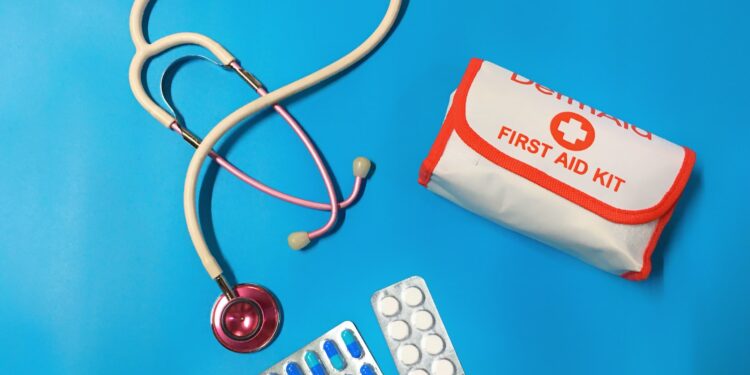
Photo: https://unsplash.com/photos/ZyxNWi3JCto
Traveling is an exciting experience that allows individuals to explore new destinations, immerse themselves in different cultures, and create unforgettable memories. However, when you have medical needs, traveling requires careful planning to ensure a safe and comfortable trip. In this article, we’ll provide you with some essential tips for planning a stress-free journey, whether you’re traveling with a cast, require a portable oxygen device for flying, or need to visit a chiropractor during pregnancy.
Consult with Your Doctor Before Traveling
Before embarking on a trip, it’s crucial to consult with your doctor or healthcare provider to ensure that you’re medically fit to travel. They can advise you on any precautions or necessary steps you need to take to manage your medical condition while on your trip. For instance, if you have a broken bone and are traveling with a cast, your doctor can recommend the right type of cast shower cover to protect your cast while showering or swimming.
Pack Medications and Medical Supplies in Your Carry-On
When traveling with medical needs, it’s essential to pack your medications and medical supplies in your carry-on bag. This way, you can access them easily in case of flight delays or lost luggage. Be sure to carry a copy of your prescription and a letter from your doctor stating your medical condition and the need for the medication or medical equipment. If you require a portable oxygen for flying, make sure to inform your airline in advance, as they have specific regulations on the type of device allowed onboard.
Research Your Destination’s Healthcare Facilities
It’s crucial to research the healthcare facilities available at your travel destination, especially if you have a pre-existing medical condition. Find out the location of hospitals, clinics, and pharmacies in case you require medical attention or need to refill your prescription. Additionally, check if your health insurance covers medical emergencies or treatment abroad.
Consider Your Accommodation’s Accessibility and Amenities
When booking your accommodation, consider its accessibility and amenities, especially if you have mobility issues or require special equipment. If you’re pregnant and require chiropractic care, look for a hotel that offers on-site chiropractic services or is located near a chiropractic clinic. This is particularly important if you’re experiencing discomfort or pain related to your pregnancy. You’ll want to ensure that you have access to a chiropractor for pregnancy who is trained in pregnancy-related adjustments and who can help alleviate any discomfort you may be feeling. Additionally, consider the proximity of the accommodation to hospitals or medical facilities in case of any emergency related to your pregnancy.
Plan Your Itinerary with Rest Stops
Traveling can be physically and mentally exhausting, especially when you have medical needs. To avoid overexerting yourself, plan your itinerary with rest stops, allowing for breaks between activities. This way, you can rest, take your medication, or attend to your medical needs as necessary. Don’t push yourself beyond your limits, as this can worsen your medical condition and affect your travel experience.
Notify Your Travel Companions of Your Medical Needs
If you’re traveling with friends or family, it’s essential to notify them of your medical needs and any emergency procedures. They can provide assistance or alert medical professionals if necessary. Additionally, inform them of any dietary restrictions or precautions you need to take, such as avoiding certain foods or activities.
Be Prepared for Emergencies
Despite careful planning, emergencies can happen, especially when traveling with medical needs. Be prepared for emergencies by carrying a first aid kit, emergency contact information, and copies of your medical records. If you’re traveling abroad, research the local emergency services and the location of the nearest embassy or consulate. Additionally, consider purchasing travel insurance that covers medical emergencies and evacuation. This way, you can have peace of mind knowing that you’re prepared for any unexpected situation.
In case of a medical emergency during your trip, remain calm and seek immediate medical attention. Contact your travel insurance provider and inform them of the situation. If you require medical treatment, keep all receipts and medical records, as you may need them for reimbursement.
Conclusion
In conclusion, traveling with medical needs requires careful planning and preparation to ensure a safe and comfortable trip. Consult with your doctor before traveling, pack your medications and medical supplies in your carry-on, research your destination’s healthcare facilities, consider your accommodation’s accessibility and amenities, plan your itinerary with rest stops, and notify your travel companions of your medical needs. By following these tips, you can enjoy a stress-free journey and make unforgettable memories.



